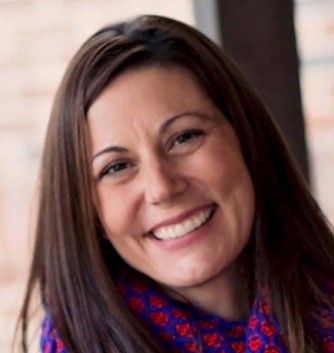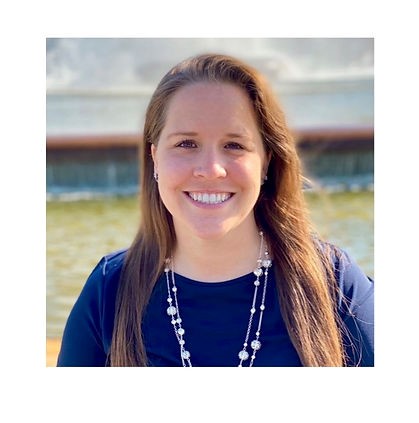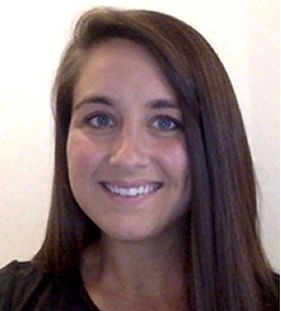 Cassie Quigley
Cassie Quigley
Department Chair and Associate Professor
Dr. Cassie Quigley is an Associate Professor of Science Education in the Department of Instruction of Learning at the School of Education at the University of Pittsburgh. She received her doctorate in Curriculum & Instruction at Indiana University in 2010. As former biology and physics teacher, she wondered how science was distancing students by eliminating certain knowledges and voices. While her scholarship on voice and power began many years ago studying discourse practices in science classrooms, the same underlying questions form the arc of her current research which asks the question, ““How can STEM be transformed to embrace multiple knowledges, a critical stance towards content and schooling?” She centers those individuals and communities, most often on the margins, as the focus of her work by asking critical questions about their participation in science.
Her current projects include understanding how girls and students of color can transform STEM education. Specifically, she is interested in how formation of STEM occupational identity can be leveraged to change the way we teach STEM. Through two grants (Grable and the National Science Foundation) She is working with ten schools across PA to study how their teaching of co-designed student-driven curriculum can be implemented in a variety of settings.
At Pitt, she directs the STEAM Education Program, is a member of the university’s Environmental Sustainability Coalition, and is the Chair of the Department of Teaching, Learning, and Leading. She is also the program chair for AERA’s Qualitative Research Special Interest Group, on the diversity committee for the Association for Science Teacher Educators, and on the coordinating committee for SEEDS (Science Educators for Equity, Diversity, and Social Justice)
 Holly Plank
Holly Plank
Graduate Student Researcher
Holly Plank is a Graduate Student Researcher and PhD student in the Learning Sciences and Policy (LSAP) program in the Department of Teaching, Learning, and Leading in the School of Education. Her research interests include teacher education, STEAM, computational thinking, and environmental justice. Holly’s background is in Earth and Space Science Secondary Education.
She is a former middle school science and physical science teacher, department chair, school leader, and instructional coach. As an instructional coach, Holly supported preservice and novice K-12 teachers in a variety of core subjects and STEM electives with curriculum development, culturally sustaining pedagogy, learning environment planning, family engagement, real-time coaching, and more. She earned her Master’s in Educational Administration, Curriculum and Supervision from the University of Oklahoma and has served as a Manager of Teacher Leadership Development and Science Content Facilitator with Teach for America-Greater Tulsa as well a School Director with Teach for America’s National Institute.
As a researcher, she has experience in research-practice partnerships. She worked on a PA Smart grant focused on computational thinking and collaborative problem solving that involved quantitative and qualitative data collection from students and teachers at five school sites, data analysis, and communication of results and implications. She also supported the launch of a research-practice partnership at MuseumLab between the Children’s Museum of Pittsburgh and Manchester Academic Charter School. She is currently working on two grant-funded projects that support inservice teachers in integrating content like environmental justice and data science as well as English Language Arts and computer science to support historically underrepresented students. At Pitt, Holly has served as a teaching assistant and instructor of record in the Master’s of Art in Teaching program.
 Hillary Henry
Hillary Henry
Graduate Student Researcher
Hillary Henry is a Graduate Student Researcher and PhD student in the Learning Sciences and Policy program in the Department of Teaching, Learning, and Leading in the School of Education. Her research interests include discipline integration, equitable instruction, relational teaching, and student collaboration. Hillary’s background is in Elementary Education and Teaching, Learning, and Advocacy.
She is a former elementary and middle school teacher, grade level chair, and professional development facilitator. Additionally, Hillary served on the district’s Science Feedback Committee, collaborating to create district-wide assessments, STEAM related activities, and science labs. She earned her Master’s Degree in Teaching, Learning, and Advocacy with a concentration in Curriculum Instruction from the College of Charleston. During this time, she took the opportunity to do educational research in Bhubaneswar, India studying their curriculum implementations as they pertained to equitable instruction and relational teaching.
As a researcher, Hillary has participated in two projects funded by the McDonnell Foundation. One developing a longitudinal case study of a mathematics instructional coach’s growth over time and the other designing tools to be used by instructional coaches as they work one-on-one with teachers. She is also involved in a research-practice partnership through the National Science Foundation that aims to integrate literacy and computer science in 5-8th grade classrooms. At Pitt, Hillary has served as a co-developer and teaching assistant in a Freedom Seminar on Environmental Justice and STEM Pedagogies offered through the School of Education.
Contact Information: hmh60@pitt.edu
 Aileen M. Owens
Aileen M. Owens
Director, ThroughlinesEdu Education Consulting
Aileen Owens has a twenty-year history building and leading innovative teaching and learning experiences in K-12 and higher education specifically focused on strategic planning and implementation of CS/STEAM pathways. Prior to founding ThroughlinesEdu, she was director of technology and innovation at South Fayette Township School District (2010-2021) where she built one of the nation’s first vertically aligned computational thinking initiatives K-12. As project manager for a PAsmart Advancing grant (2018-2019) from the PA Department of Education entitled The STEAM Studio Model for Innovation: Building Robust Learning Ecologies and Pathways in Computer Science, Aileen supported seven regional high-needs school districts in building a CS/STEAM K-8 pathway. Currently (2019-2022) Aileen is a project manager for a three-year NSF grant entitled Tough as Nails, Nimble Fingers: Developing a K-8 Coding Pathway for Kentucky Appalachia designed to build a similar pathway for rural school districts in Appalachia. This project lies at the intersection of education and an economic redevelopment plan. Aileen is currently project manager (2021-2022) on a grant from Grable Foundation entitled Environmental Justice Pathway: Empowering Students Through Relevant and Agentic Data Science Lessons. This project expands data science into the CS/STEAM pathway and into core curriculum areas to prepare students for the future of work.
Challenged and supported by the Grable Foundation to make innovation happen in Southwestern Pennsylvania, and to support equity in education regionally and nationally, Aileen directed the STEAM Innovation Summer Institute (2013-2020) providing outreach and professional development in computational thinking and STEAM learning to the region.
Aileen is the recipient of Education Week’s Leaders to Learn From Award; Pennsylvania ASCD Outstanding Research and Publication Award; the Consortium for School Networking (CoSN) Frank Withrow Outstanding CTO Award; and the PAECT Chief Technology Officer of the Year. Aileen and her team share and collaborate with educators nationally, presenting at SIGCSE, SXSW Interactive; ISTE; World Maker Faire NYC; Scratch@MIT; and the Digital Media and Learning Conference. Aileen is actively involved in the Pittsburgh Remake Learning Network.
Contact Information: aileen.owens@gmail.com


 Cassie Quigley
Cassie Quigley Holly Plank
Holly Plank Hillary Henry
Hillary Henry Aileen M. Owens
Aileen M. Owens